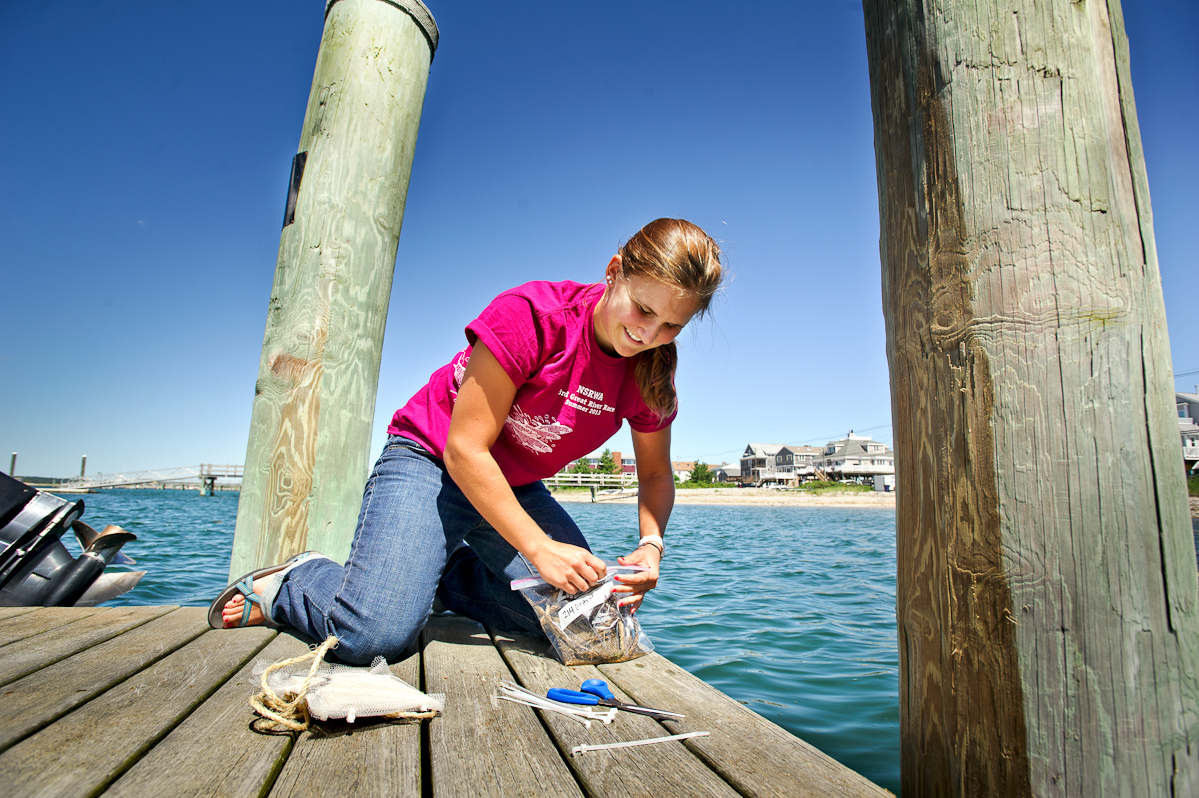
The North and South Rivers Watershed Association (NSRWA) is a non-profit grassroots organization attempting to protect the water and other natural resources in Southeastern Massachusetts. Founded in 1970, the group manages environmental restoration projects and now has over 1,500 members. Emily Pitman ’15 interned at this organization this summer and reengaged her connection with the environment, while conducting scientific and legislative research.
The Jeffrey Fund in Science, administered by Hamilton’s Career Center supported Pitman’s internship.
According to Pitman, the NSRWA’s projects are broad reaching and impact the environment, community and economy. Pitman was involved in many aspects of the organization and directly contributed to the environmental restoration, protection and education programs.
One of Pitman’s main projects was restoring fish runs that follow rivers into the Atlantic Ocean. Herring live in the ocean for most of the year but travel upstream in rivers to spawn. Pitman and the NSRWA cleared the rivers of debris, allowing more herring to maneuver through the paths.
During the industrial revolution, many mills and other factories relied on power generated from flowing river water. Companies built water wheels and dams in the river, and many of the structures were abandoned as industry moved from small towns to larger cities. The NSRWA deconstructs these dams and removes the forgotten industrial waste so that more water can flow through the river and support a larger fish population.
Years of poor river conditions eliminated some blue mussel colonies in the river, and Pitman also worked on a project to reintroduce the species. These filter feeders are essential in many aquatic environments, as they can remove bacteria, toxins and other pollutants from water. Pitman took various chemical and oxygen level readings at different locations in the river to see where the mussels should be reintroduced.
Sara Grady, the staff ecologist, taught Pitman how to use the equipment and analyze their data. Pitman has appreciated the professional experience of conducting scientific research while also benefitting the environment.
Before collecting and relocating mussels, Pitman had to do her research. She studied federal regulations and policies on the mussels to find what permits they needed to reintroduce the species. She also found case studies to follow other groups’ reintroduction methods, with one project in the Long Island Sound being particularly successful.
Once Pitman received the correct permits and found spots that would benefit from and mussel reintroduction, she and the other interns raked and collected thousands of the small mollusks. They then redistributed the mussels through the river with the ultimate goal of supporting a large enough population that would allow year-round shellfish harvesting.
Pitman “loves interacting with the community and stimulating their interest in environment restoration.” She did weekly outdoor programs with children and also offered kayaking and canoeing trips to attract more volunteers. With a concentration in geosciences and minor in public policy, Pitman is planning on pursuing a career with environmental advocacy groups to continue her altruistic work.
Pitman is a graduate of Tabor Academy (Mass.).
